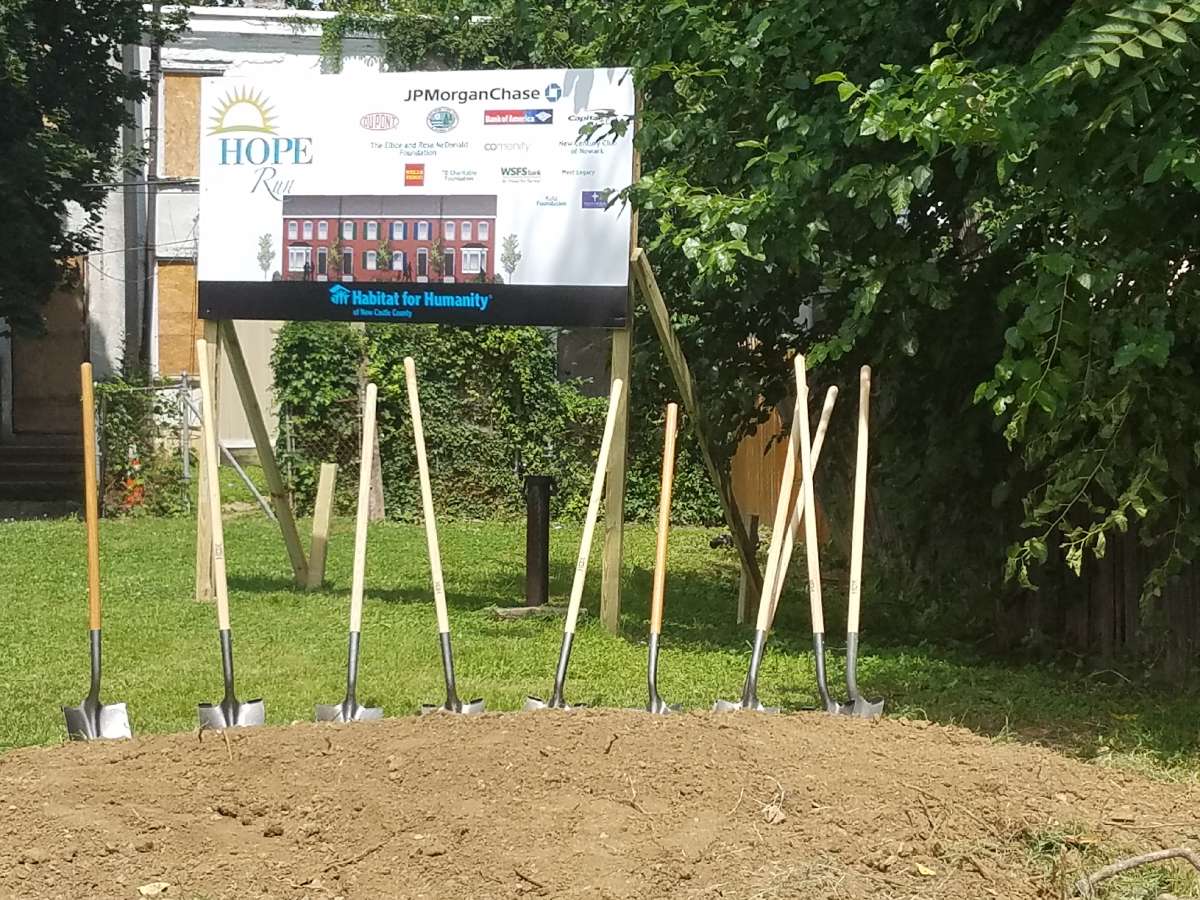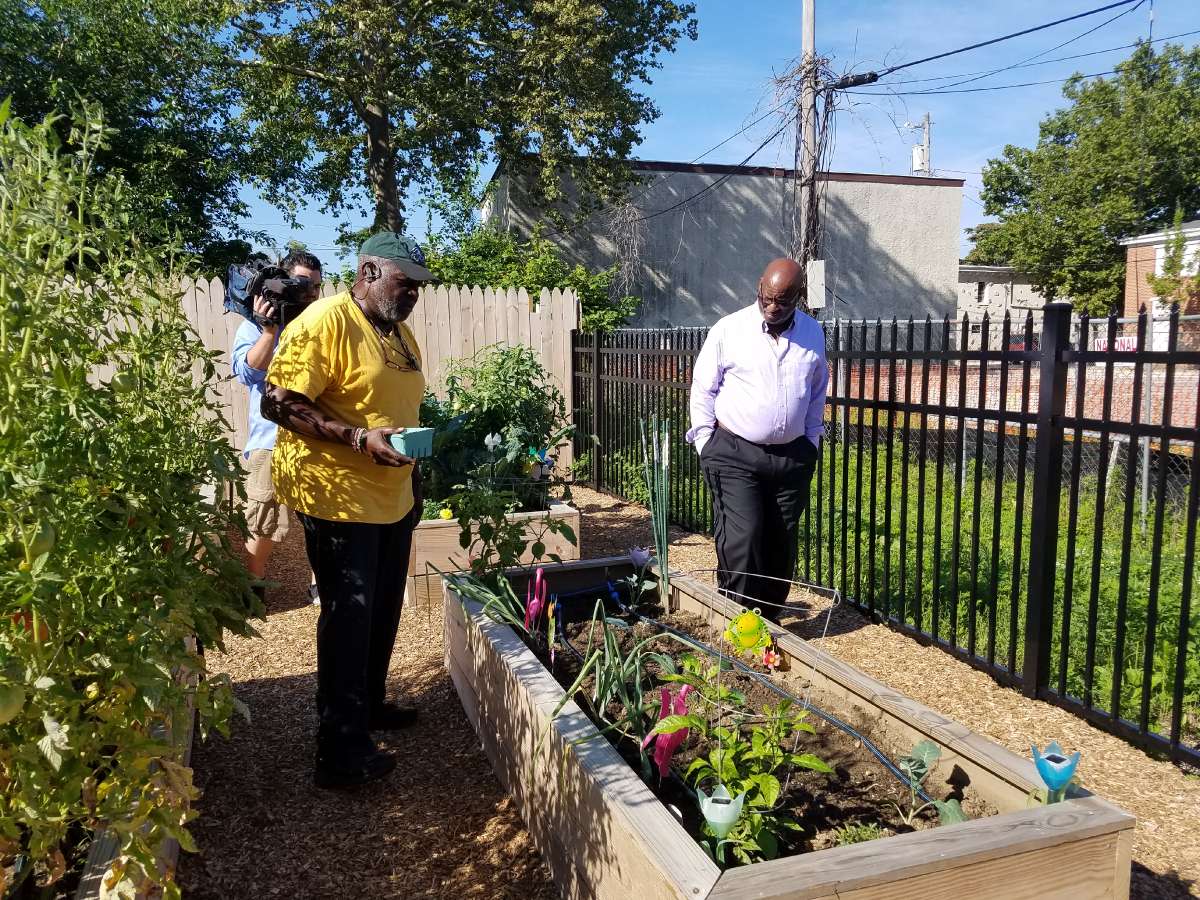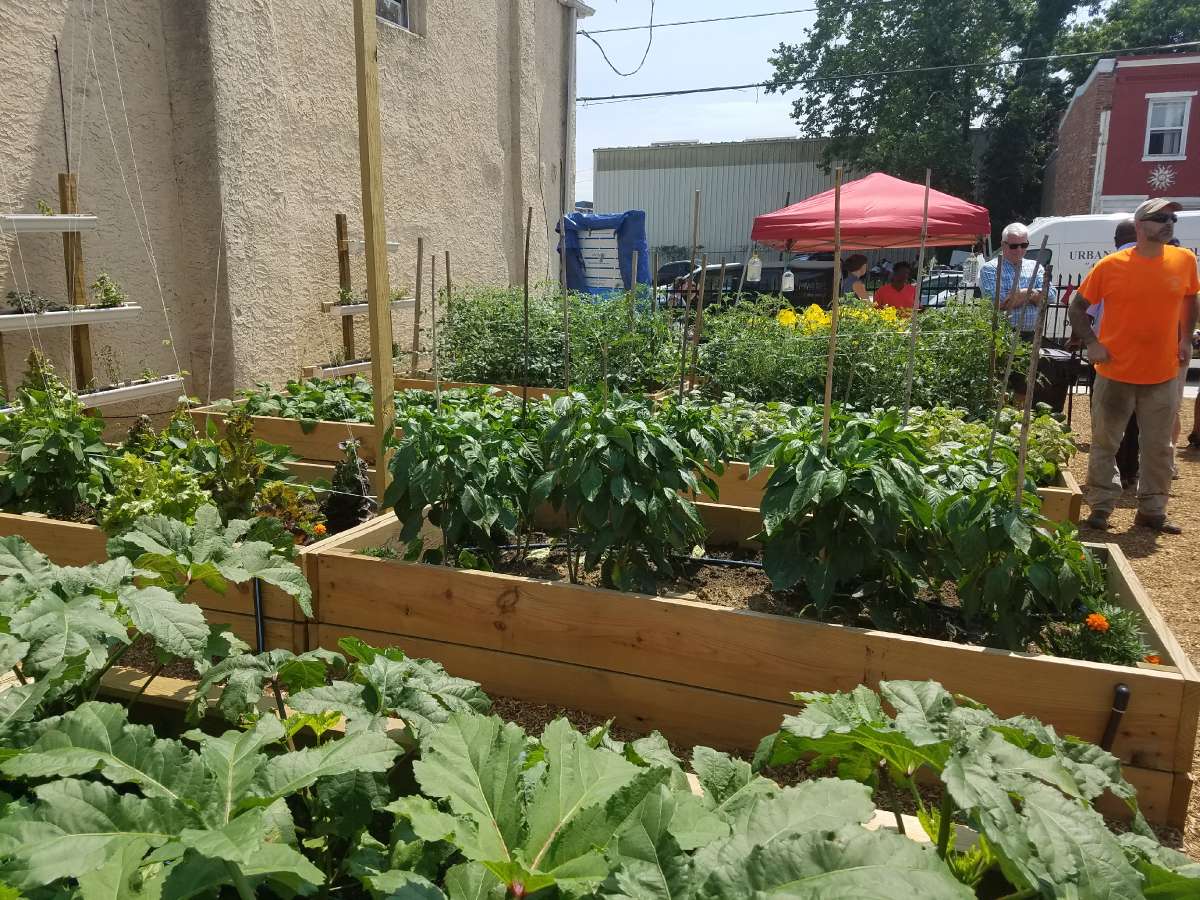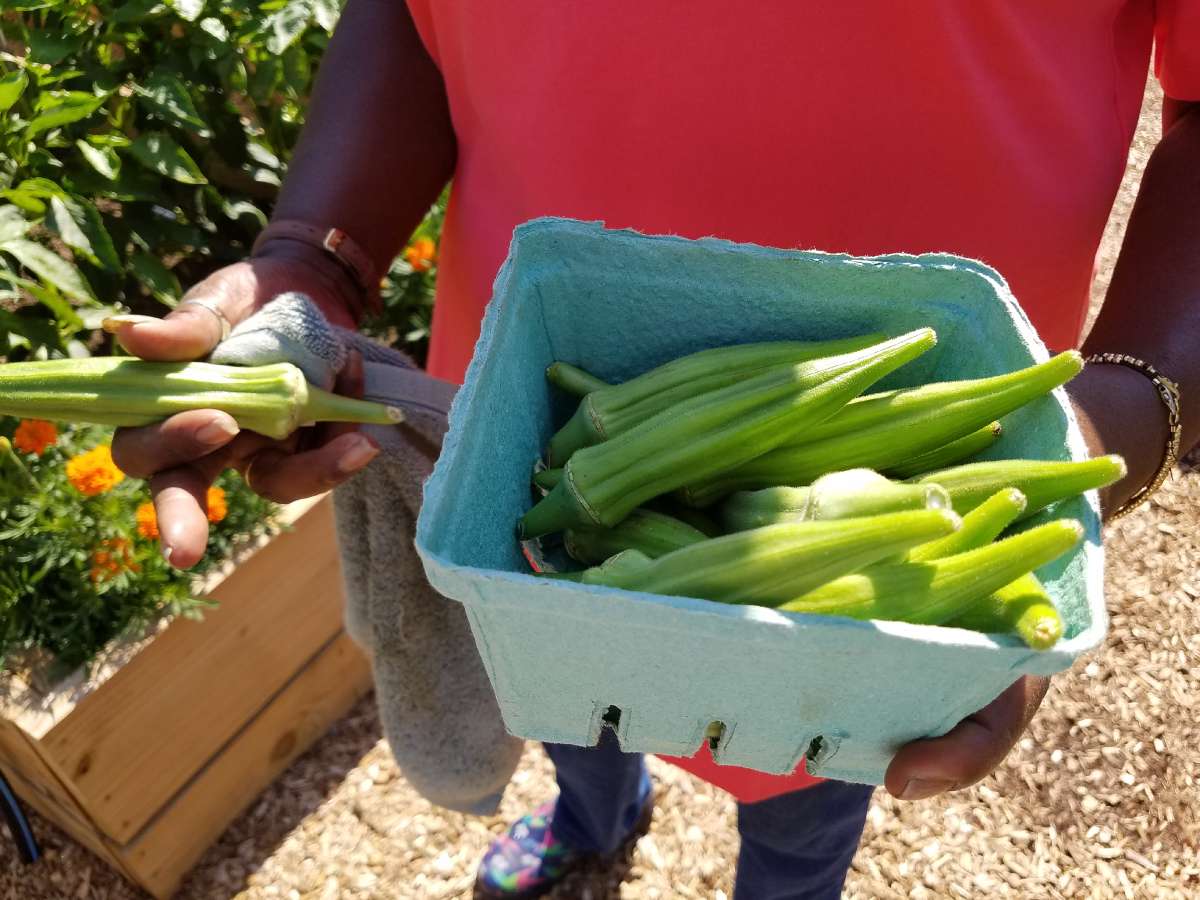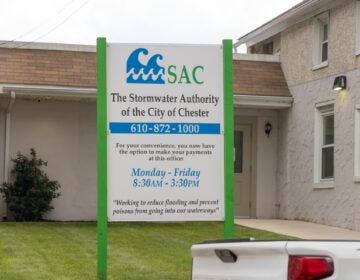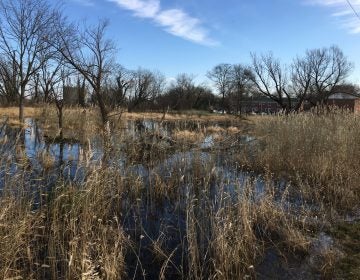Urban garden brings life to Wilmington’s East Side
Revitalization projects on Wilmington’s East Side are helping to nourish, raise hope and rebuild a community plagued with poverty, crime, blight and low homeownership rates.
Urban Acres Produce is among those ventures. “This is the perfect example of what it takes to revitalize a neighborhood,” said City Council President Hanifa Shabazz.
Shabazz toured Urban Acres garden on 8th and Church Streets and was surprised to see how well the project has progressed. “I remember when Reverend Keeling first eyed the location, and he and I came out to see what [it] could become,” said Shabazz.
What the garden has become, according to Shabazz, is an example of life in a community prone for violence and death, and it’s the people in the community who are responsible for this resurgence.
Shabazz, along with Wilmington Mayor Mike Purzycki, New Castle County and other city representatives were among those who toured the garden, after attending a ground breaking ceremony for four new homes being built by Habitat for Humanity of New Castle County. The site of the new construction project is located a few yards away from the garden.
The construction project and the garden are part of East Side Rising ventures aimed at rebuilding this community.
Mike Minor and Reverend Dr. Terrence Keeling of Central Baptist Church are the forces behind Urban Acres Produce, a non-profit organization founded by the church’s Community Development Corporation.
What began as a volunteer effort by the church has turned into a service to the community. “We started Urban Acres because this was what they call a food desert. There was no real way for people obtaining nourishing food. So, we started really as a little stand on the corner right in front of the church on Saturday mornings,” Keeling said. There are now eight different stands in locations throughout the city that are considered food deserts.
On Tuesdays through Fridays, volunteers sell fruits and vegetables from the garden outside senior centers and health clinics in Wilmington.
There are 26 beds in the garden. Half of them are run by residents and community members and the others are production beds for Urban Acres to sell at their stands. The lots where the garden sits were donated by Wilmington Housing Partnership
“When I first came to this lot it was very bad. It was run down,” said Mike Minor, director of Urban Acres Produce. “Trees were overgrown. Fences were torn down and it was a place that was certainly an eyesore. Certainly, a place where any kind of activity would take place in the community and it was just a mess.”
It cost participants $10 a year to occupy a bed, and you don’t have to live on the East Side to get one. You do however have to be committed to tending your garden on a regular basis and being neighborly to your fellow gardener.
Darlene Hackett of Newark has a bed in the garden. Her sister, Tina Leatherbury, the garden manager, convinced her that gardening would be a good thing for her to do. “It’s relaxing and rewarding to watch things grow,” said Hackett. She visits the garden twice a week to check on her purple bell peppers, dragon chili peppers and tomatillos, which she uses in her salsa. She said the experience has taught her the proper way to garden, specifically how to identify weeds.
Minor, a retiree and former business owner, claims he’s not a farmer but he’s slowly coming around to seeing himself as one. “I’m not a farmer. This is the first year that I think that I’m getting close to being a farmer. And it’s just that I have a lot of help. I know a lot of farmers, I spend a lot of time with farmers and I try to pay attention.”
As the summer comes to an end, the plants will stop producing and the garden will get some much-needed rest to get ready for next year’s production. But those prone to live in food deserts like the sick, elderly, poor and young still need access to the produce the garden provides. “We believe that our people need fresh produce all year. So, last year we were fortunate enough to get some help,” Minor said. They were able to keep some of the stands in operation thanks to grant money used to purchase fresh produce.
“We were actually able to run five of our produce stands through the winter. We went inside of buildings, inside senior centers, inside of healthcare facilities, and we setup on a regular basis and brought fresh produce onto the stands,” Minor said. This year they will purchase fresh fruits and vegetables at cost from the Philadelphia Produce Market and sell it at their stands.
Minor is pleased with how the garden has turned out since its inception in 2011, but hopes that Urban Acres Produce can expand beyond its current status in the future. “We are looking for someone who will partner with us. Someone who will be able to see our mission, buy into our mission and give us regular sustainable funds, so we can expand and do other gardens in other places.”
WHYY is your source for fact-based, in-depth journalism and information. As a nonprofit organization, we rely on financial support from readers like you. Please give today.


